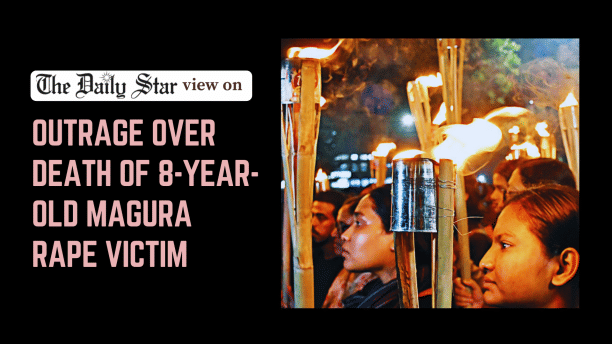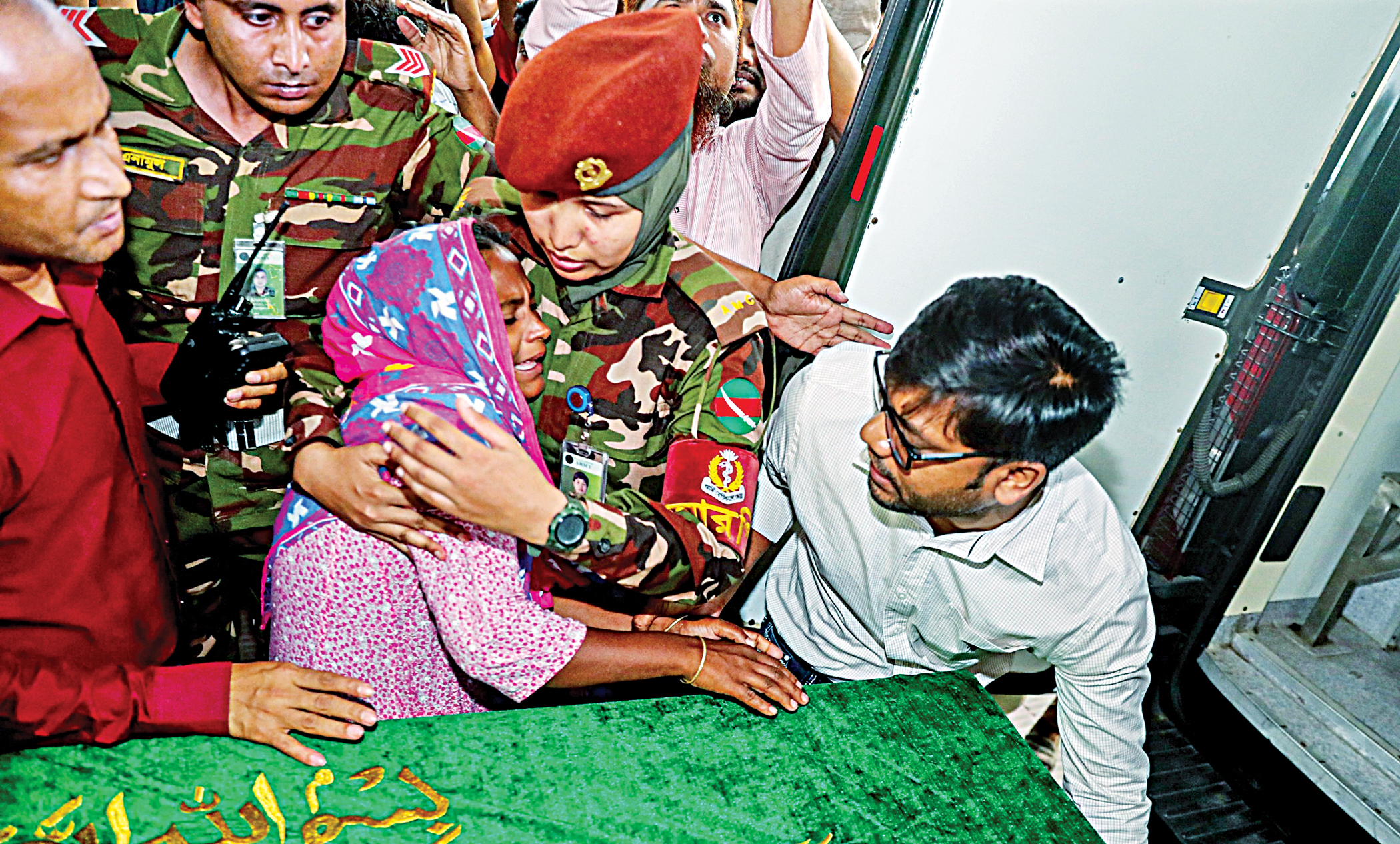Time to form a commission on sexual crimes

We are deeply troubled by the tragic death of the eight-year-old girl from Magura, whose six-day struggle for life ended at the Combined Military Hospital (CMH) in Dhaka on Thursday despite the efforts of doctors. Her passing, after being allegedly raped and choked, is a heartbreaking reminder of how unsafe women and girls continue to be in a country grappling with widespread gender-based violence. While the outrage that has followed the news of the cruelty inflicted upon the third-grader by her sister's in-laws shows a broader sense of solidarity, it will mean little unless we channel this grief into meaningful action, challenging the deep-seated sociocultural biases against women and ensuring stronger protection for victims. Without such efforts, tragedies like this will continue to occur.
We have written on this issue several times in recent weeks amid disturbing revelations about sexual violence and harassment, domestic violence or abuse by husbands and relatives, child marriage, abuse of street children, and unrestricted circulation of misogynistic content online. These have prompted frequent protests across the country, leading the government to pledge swift justice, including by setting deadlines for rape investigation and trial. Bangladesh's abysmally low conviction rate in sexual violence cases is no secret. While the law adviser's statement that law enforcement agencies will have to complete rape investigation within 15 days, and the trial within 90 days, marks a step in shortening waiting periods for justice, this is neither enough nor a guarantee that justice will be served.
Experts say that the real challenge in such cases lies in ensuring thorough investigations, preventing interference or intimidation by influential quarters, addressing systemic flaws that allow perpetrators to escape accountability, and also tackling societal attitudes that perpetuate impunity. How can we ensure justice or prevent such crimes without addressing these challenges? Equally importantly, why does it always take a tragedy of this magnitude to pledge, or prompt, government action?
The truth is, mere pledges—or reactive policies—are not enough. We need stern, proactive action to tackle such crimes from the outset, not as an afterthought. We need regularly meted out punishment rather than exemplary punishment in the face of public outrage. The interim government, which emerged from a mass movement demanding accountability, has a particular responsibility in this regard. Given the level that gender-based harassment and violence has reached of late, we urge the government to establish a commission to look into such crimes, including rape of children, and suggest comprehensive legal and administrative reforms so that no crime goes unreported and unpunished. Moreover, society, too, must confront the harmful cultural norms condoning or downplaying such violence.



 For all latest news, follow The Daily Star's Google News channel.
For all latest news, follow The Daily Star's Google News channel. 

Comments